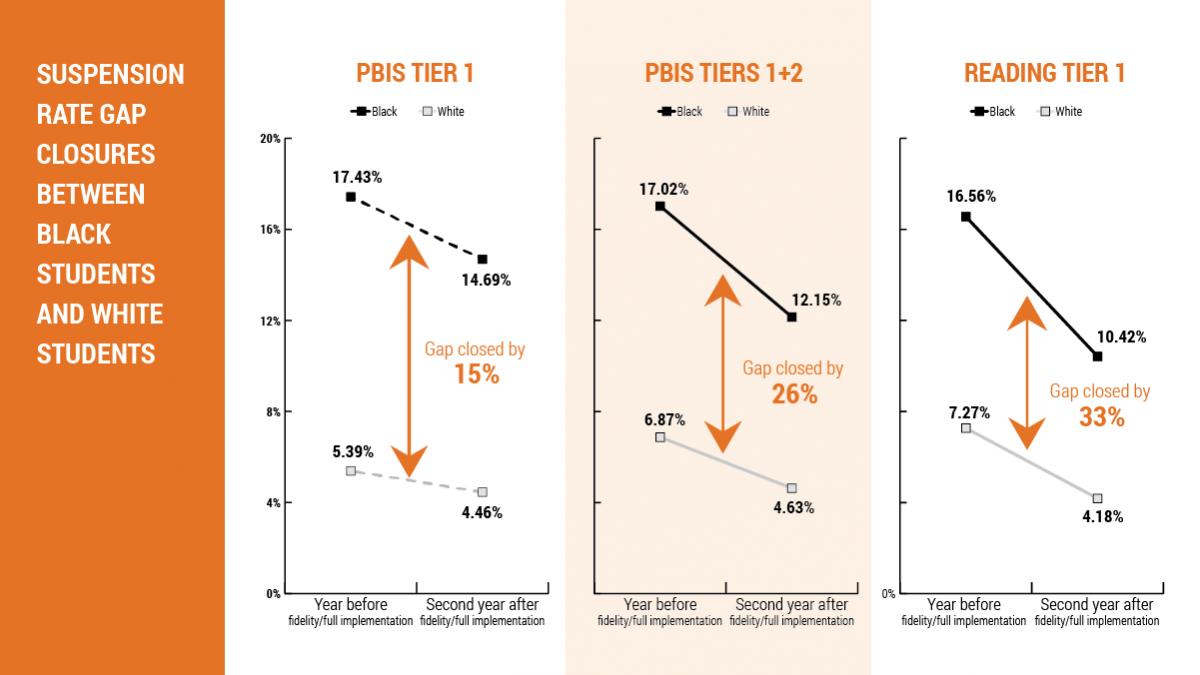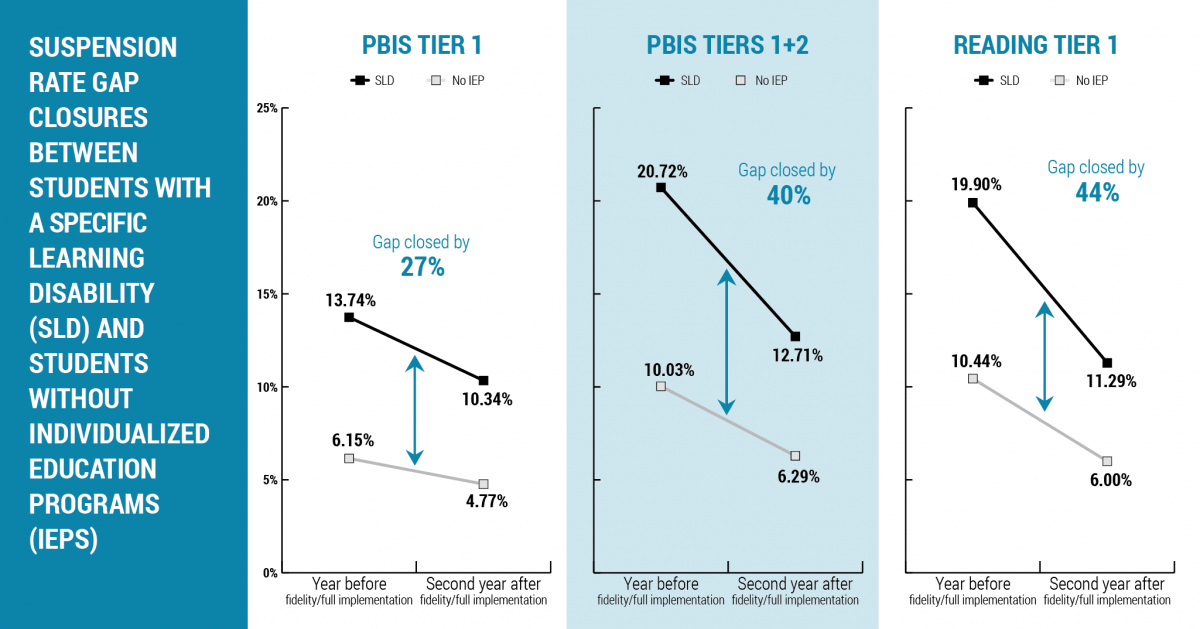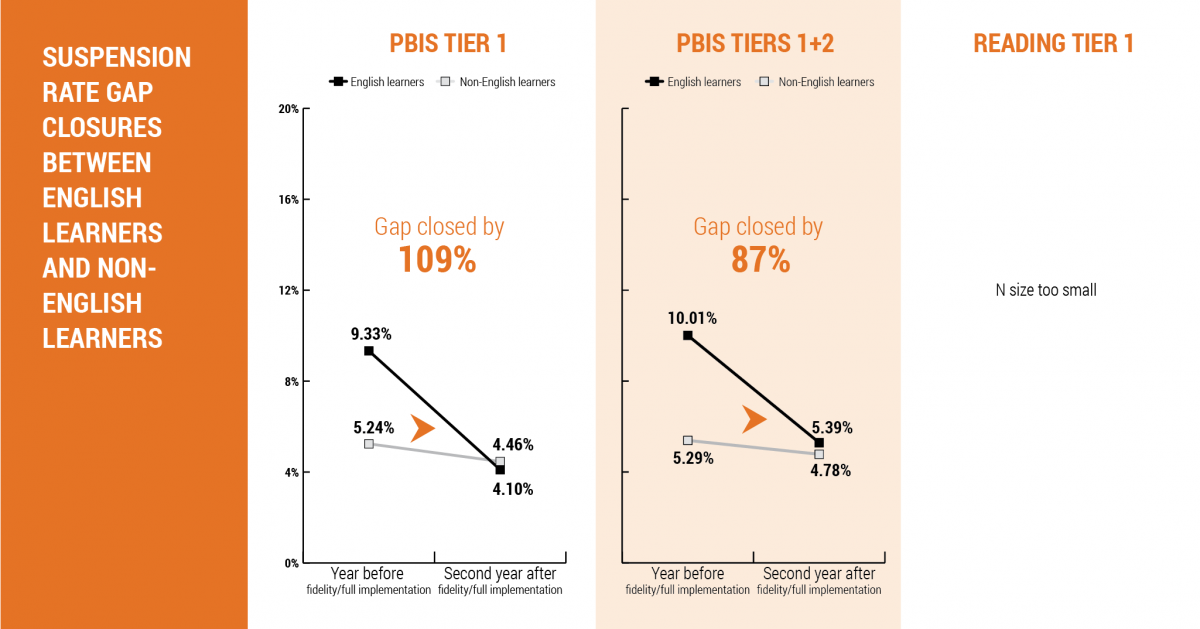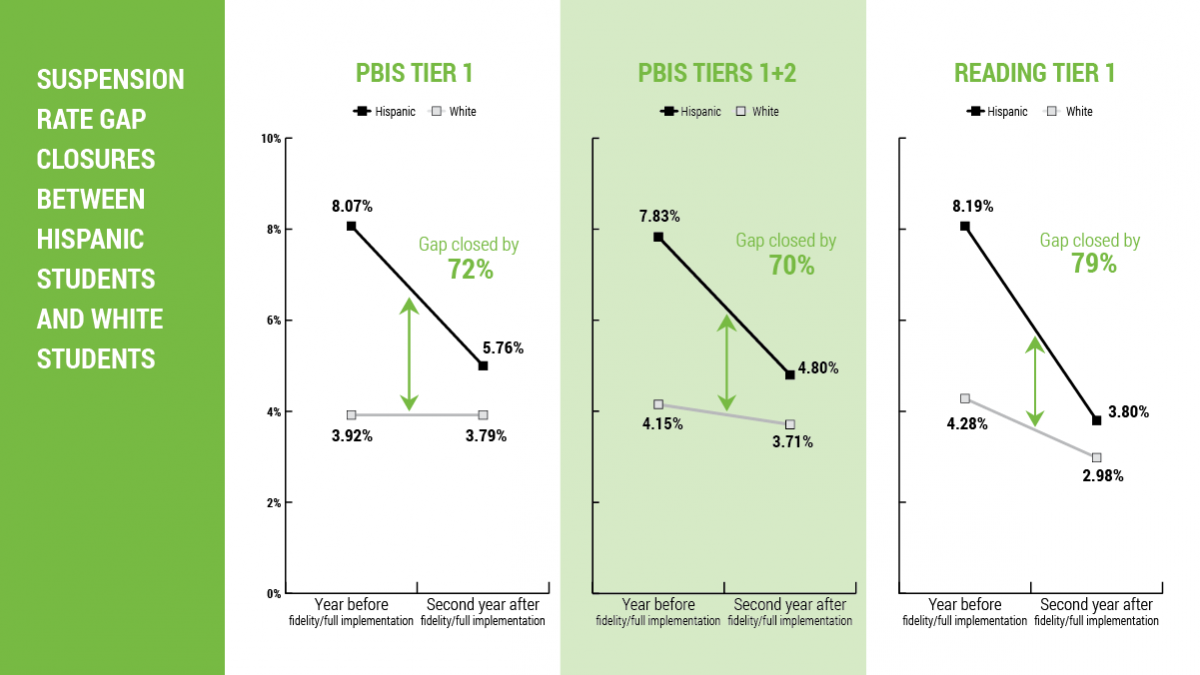Each year, schools throughout the state engage in a journey to implement and sustain an equitable multi-level system of support, ultimately improving outcomes for all students. The Wisconsin Response to Intervention (RtI) 2017-18 annual report provides a detailed glimpse into the professional learning and implementation necessary to do this.
The Wisconsin RtI Center, in association with the Wisconsin Department of Public Instruction and Wisconsin PBIS Network, produce the report each year.
The report summarizes numbers of schools and districts that have participated in one or more of the academic and behavior learning opportunities they provide, alongside implementation measurements. Categories are broken down into behavior and academic training opportunities, technical assistance, and school self-assessment of implementation.
As of this year, 80% of all schools in the state have participated in professional learning with the RtI Center, focusing on reading, math, and/or Positive Behavioral Interventions and Supports (PBIS), (2018). Schools are encouraged to measure implementation of their equitable multi-level system of support through a combination of academic and/or behavior assessments by staff. The 2017-18 report breaks down the number of schools that have assessed implementation of reading, mathematics, and behavior to examine their efforts in meeting academic and behavior-social-emotional needs of all students.
Five schools’ “snapshots” arranged throughout the report reveal more in-depth specifics about what some schools are doing with the data they collect, how they implement their equitable multi-level system of support and associated positive outcomes. While commonalities among the stories revolve around strong universal instruction and identifying appropriate tier two supports, each snapshot establishes the individual care taken in each context to address students’ needs. From scheduling changes to the Check In Check Out process to including students in school decision-making processes, the school stories show very different implementation journeys appropriate to their individual contexts.
In order to sustain positive changes over time, continual assessment and reflection are crucial. The report reveals that 610 trained schools have assessed at the universal level in behavior, mathematics, or reading for the last three years. This process allows for the celebration of positive outcomes alongside the ability to prioritize plans for improvement (2018). Schools implementing an equitable multi-level system of support are seeing promising outcomes, especially in reducing suspension rates.


Fig. 1.2 Suspension rate gap closures between students with an SLD and students without IEPs.
A major focus in the 2017-18 report is the reduction in student suspensions based on the implementation of PBIS tiers one and two and reading tier one at fidelity for at least two years. For these schools, suspension rate gap closures between Black students and White students, Hispanic students and White students, and students with a specific learning disability and students without individual education programs are encouraging.


For more information on outcome data based on the implementation of sustainable multi-level systems of support, access the “2017-18 Wisconsin RtI Center Annual Report.”
To learn more about the Wisconsin RtI Center tools, assessments, and upcoming events, visit the Wisconsin RtI Center. To learn more about PBIS and educators events, visit the Wisconsin PBIS Network.
Follow the RtI Center on:
- Facebook https://www.facebook.com/WisconsinRtICenter/
- Twitter https://twitter.com/WisRtICenter
- Tips to inbox http://bit.ly/WisRtICenter
References
Wisconsin Department of Public Instruction, Wisconsin RtI Center, and Wisconsin PBIS Network. 2018. “2017-18 Wisconsin RtI Center Annual Report.” Accessed Nov. 26, 2018. https://www.wisconsinrticenter.org/assets/files/resources/1542218459_201... l_Report_compressed.pdf